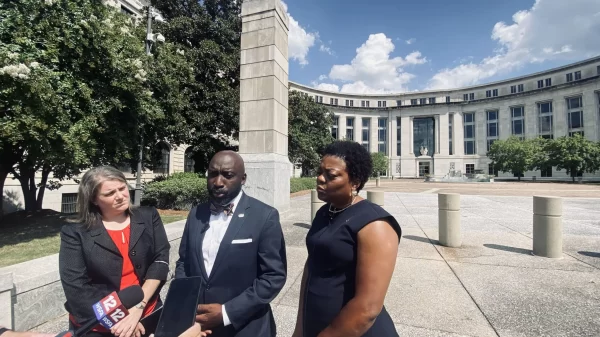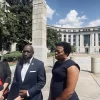By Bill Britt
Alabama Political Reporter
Lt. Governor Kay Ivey shared with us her thoughts on the session that started Tuesday. Ivey’s years of service and exceptional public policy knowledge gives insight into the priorities facing the legislators and the state.
APR: One of the things that I was hoping to do today is get your thoughts on how this budget, what can be done and what must be done to get our fiscal house in order?
IVEY: Alright, Bill, let me start with just laying out the facts very briefly about the challenges and fiscal realities that face our Great State.
Challenges are basically three in nature. The challenges are number one we still have a lot of Alabamians unemployed or underemployed. Yes the unemployment numbers are coming down, yes they are going in the right direction, yes things are looking better, but we still continue to have a lot of folks unemployed.

And thirdly, it’s not that there is not enough money in Washington or enough money in Montgomery. The challenge is to establish spending priorities. The resources need to be focused on essential services of the state. The top important issues.
So those are the three significant and major challenges that continue to face this state.
The fiscal realities:
The General Fund is in a critical situation. That information is very readily available, $360 million plus dollars down. Half of the General Fund’s expenditures are consumed by prisons and Medicaid–half of it. Yet, the General Fund is called on by many state agencies that it provide essential services.
Secondly, let’s look at the education fund. It is in a little better shape but nevertheless there is not enough money to satisfy the aspirations of all educational enterprises.
The reality is for the last 10 years, 2002 to 2012, if you look at the K-12 population it has remained pretty constant at 730,000 young people in K-12 over that 10-year span. At that same time, the appropriation of the Education Trust Fund to education has increased $1.5 billion (that’s with a ‘b’). So to those people who say, “Oh, yes, we need more money for education.” I have to say, “I believe we need more education results for our money.”
Secondly, the reality is that Legislature last year increased the size of the Education and the General Funds over the previous year. So, that is a fiscal reality. Again, there is still not enough money to satisfy all the aspirations of those served by the Education Trust Fund.
Again, spending priorities are a huge challenge.
Then you look at retirement, again under fiscal priorities, the budgets last year appropriated $1 billion dollars to RSA–$1 billion of taxpayer’s dollars.
That brings us to the fact that the state operates with two budgets: General Fund and ETF. We are one of three states in the nation that have two budgets. And there is some good rational for having two budgets especially when times are flush, but now is not that time. And has not been that time for some time.
So you have to ask the question: Is doing the same things with the same models and expecting different results the way to go?
Other states have found that one budget serves them better. So, it begs the question, we need to be open to new models, new paradigms that receive and distribute our resources.
Another final and fiscal reality is the amount of earmarking, predetermined dollars, that have been mandated by previous constitutional amendments, for the people over the years. Earmarking in Alabama is now at 84 cents on every dollar that taxpayers pay–84 cents of every dollar has already been predetermined about where it is going The predetermination has been based on votes of yesteryear. So if 84 percent is the way we ought to be earmarked, when you look at other states, the closest one to us is 67 percent. All other states average their earmarking between 23 and 27 percent.
So again, is the model for earmarking that we have and utilize in Alabama the preferred model? You have to just opine that if an earmark tax was passed in yesteryear for a specific purpose, is it possible that that purpose, over time, over the last 30 years been somewhat satisfied and the original amount of earmarking for that purpose maybe could be modified in this 21st Century? And maybe say instead of 10 mils going to that purpose, maybe they could get by with 2 mils? A look at that needs to occur.
So these are fiscal realities along with the challenges that the state faces that sets the environment in which conscientious House and Senate members and the leaders thereof have to focus their decisions.
For example, in the prisons we simply do not have enough money to build bricks-and-mortar new prisons so we have to find ways for reductions, otherwise, the federal court and say, “Y’all are overcrowded at over 192 percent occupancy, y’all have got to do something or we are going to do it to you.”
APR: If the Federal Government takes over our prison system I am afraid we are in deep trouble.
IVEY: Absolutely, the courts are the last resort. So one of the proposals that will be addressed in this session is proven sentence reform. So, we have got to find ways to reduce the prison population without building more bricks and mortar. [Tuesday], as you know, starting at 9:30 over at the Capital Auditorium the finance director and acting director of NFO, Norris Green, will give their budget presentations and their budget predictions and their rationals.
Then every Wednesday afternoon, starting February 8, there will be budget hearings in the House Chamber on the General Fund. The in-depth study and recognition of aspirations plus management of aspirations with fiscal realities will be a deep challenge. And you just have to ask people if they were in the decision-making role to consider new models, new paradigms to deliver the essential services of state.
No matter how much you cut, there will never be enough money available until you establish spending priorities. And again, in these dire fiscal times there is opportunity. This is important for everybody to understand, a basic principle of public policy, when you study public policy, their basic principle is this: In any public entity, whether it is the mayor’s office of the local school board or the state of Alabama, the only times systemic change can be made is in times of dire financial stress.
So with that in mind, we have lots of opportunities now to address this situation and come up with spending priorities that will provide on an ongoing basis services, in a quality manner that the citizens of Alabama deserve to have and that the departments are mandated to deliver. But there will have to be some choices and changes made to match limited resources with the priorities to every department.
APR: Given the fact that the RSA is investments are underfunding the states pension fund is this not one of several dire situations that are facing our education fund because that is where the RSA shortfalls come out of?
IVEY: Recognize while you have to address the situation you have to find ways to protect the people, the retirees, be that state employee retiree or education retiree. If they are already in the system, you have to find a way to protect those individuals. New policies can be directed for new hires and new retires.
APR: Right, and I agree with you 100 percent.That was just an aside that came to mind. I think we have been given a mandate, the government, to have conservative policies and that sounds like what you are talking about. I think that is what the people of Alabama are looking for.
IVEY: The Constitution of Alabama mandates that the state of Alabama share operate within its budgets. It shall not live outside the money it takes in. Whatever we take in is what we have got to live with. And that is true-to-form to every family and every business. I am grateful that Alabama has that in its constitution.
APR: I am too. If you have a few more minutes, do you have any thoughts on the charter schools that the Governor and Legislature is talking about?
IVEY: Well, again, doing what you have always done, in the same manner, and expect different results…that leads to insanity. Reality is that while indeed, Alabama has some of the finest, most dedicated teachers in the country. And while Alabama is excelling in the reading initiative and the math and science initiative and the technology access initiative, those are all well and good and need to be continued. But, when it is all said and done at this stage, when industry, whether in the United States or abroad, compare Alabama’s available resources and assets with other states that they might be considering relocating in. Alabama comes up with high marks in every category except one…that is having an adequately prepared workforce and the scores (ever how they measure) of one of our students that are in the fields that are relevant to job creation and job sustainability here in the 21st Century.
So you have to come up with additional ways to close that gap and to do things differently. I would submit to you that charter schools is but one option and it is all about providing parents a choice for where their students are going in the public school system because charter schools are public institutions and they operate under the charter that is designed by local folks with local standards, local expectations so that the charter school is no longer under the burden excessive federal, state or union regulations. So it is all about choice and it is all about having the ability to have a quality school in their area. Some areas don’t need a charter school. Their public school is performing superbly. No charter school can be established without local consent. So it is all about a matter of choice.
Right now the only choice that people have is if they have enough money they send them to private school or homeschool. There ought to be a mechanism in the public school system, in my judgement. And there has got to be a way that education enterprise can meet the needs for outstanding careers with jobs here in Alabama to keep our folks at home after they have gone through two-year or four-year.
APR: Anything you would like to add as that we have not covered here?
IVEY: Another thing that our citizens face, it’s an opportunity for them as well, be informed, get all the facts and help us make effective decisions not just emotional decisions. Help us make decisions that will be based on long-term effectiveness rather than making a snap judgement based on deep emotions because these are serious times and we have fewer dollars to match aspirations. So we just plead with everybody to be informed and get the facts rather than operate off of sound bytes.
APR: That is one of the big reasons that we here at APR are so dedicated.
I would like to thank the Lt. Governor for her time and perceptive comments. We all wish her Godspeed as she undertakes this legislative session.






















































